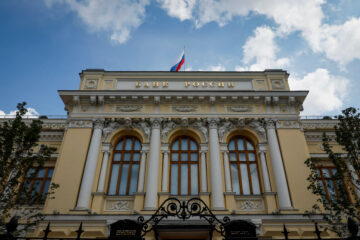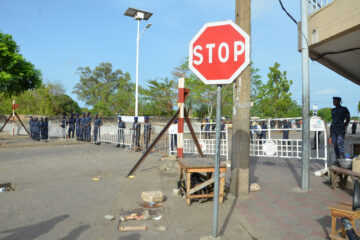Turkey raises stakes with EU on curbing migrant wave
Turkey offered the European Union greater help on Monday to stem a flood of migrants into Europe but raised the stakes by demanding more money, accelerated membership talks and faster visa-free travel for its citizens in return.
Prime Minister Ahmet Davutoglu told EU leaders Ankara was willing to take back all migrants coming from Turkey from a set date who are denied asylum in Europe, as well as those intercepted in its territorial waters, diplomats said.
In response, the EU leaders were considering his request to double their funding until 2018 to help Syrian refugees stay in Turkey and take in one Syrian refugee directly from Turkey for each one Turkey takes back from Greece\’s Aegean islands, overrun by migrants, according to a draft document seen by Reuters.
An emergency EU-Turkey summit, originally due to last half a day, was extended to give Davutoglu a chance to present new ideas going beyond Ankara\’s commitments so far.
The 28 EU leaders, desperate to end an influx of more than a million people since early 2015 fleeing war and poverty in the Middle East and beyond, were discussing his proposals and will meet him again to discuss them over dinner, an EU official said.
"They (Turkey) are offering more and demanding more," he said after the first working session, during which diplomats said all sides recognized strategies so far had not worked.
"Our aim is to go further with game changing ideas," a spokesman for Davutoglu told Reuters, describing the Turkish proposals on a full halt to movement in return for direct resettlement as a plan to "end the tragedy in the Aegean".
At a preparatory meeting with German Chancellor Angela Merkel and Dutch Prime Minister Mark Rutte on Sunday night, Davutoglu demanded more than the 3 billion euros ($3.29 billion) earmarked so far to support Syrian refugees in Turkey. One source said Ankara was seeking 20 billion euros.
"I am sure these challenges will be solved through our cooperation and Turkey is ready to work with the EU," Davutoglu said on arrival for the summit.
"Turkey is ready to be a member of the EU as well. Today I hope this summit will not just focus on irregular migration but also the Turkish accession process to the EU."
Among his demands, diplomats said, was to grant Turks visa-free travel in the EU from June instead of waiting for a planned review of preparatory measures in October.
The EU document proposed moving forward visa liberalization to June. But one EU diplomat said further concessions to Ankara would be a "hard sell" to member states facing rising pressure from anti-Muslim populist parties.
Another diplomat said Berlin and some allies were open to bringing forward the date if Ankara met all the requirements including changing its visa policy toward Islamic states and introducing harder-to-fake biometric passports.
EU leaders voiced concern and unease that the offer of increased cooperation coincided with a crackdown on media freedom that runs counter to cherished European values.
Austrian Vice-Chancellor Reinhold Mitterlehner highlighted the tough mood in central Europe when asked whether the EU should use force to close its frontiers to migrants.
"If necessary we must set such an example to show that a border is really a border. Naturally we should be careful to use means that do not endanger lives," he said in an ATV interview.
The EU leaders pledged to help Greece cope with a backlog of migrants stranded on its soil and sought assurances that Turkey, with NATO naval back-up in the Aegean, will stop people smugglers putting migrants to sea.
Merkel and Rutte, whose country holds the rotating EU presidency, spent five hours talking with Davutoglu until 2:45 a.m. to try to nail down commitments to halt the migrant flow after more than one million people – mostly Syrians, Iraqis and Afghans – entered Europe last year, most ending up in Germany.
There were also continued splits among EU leaders, with Merkel resisting pressure for the summit to endorse border closures by Austria and Greece\’s Balkan neighbors that have stranded over 30,000 migrants in Greece, and the Austrians demanding EU budget leniency before any extra cash for Ankara.
Merkel, who faces a possible political backlash in three regional elections on Sunday against her welcome for the refugees, insisted on the emergency summit to show voters the EU is acting to resolve the crisis.
Before the meeting, EU leaders told Davutoglu of their concerns about human rights after the Turkish government seized control of a critical newspaper, top-selling daily Zaman.
German and Dutch government spokesmen said Merkel and Rutte had raised the matter with Davutoglu, and French President Francois Hollande said the EU was and should remain extremely vigilant about press freedom and human rights in Turkey.
Nevertheless, the EU was taking care not to alienate Ankara just as hopes are rising of a solution to the migration problem.
Greek Prime Minister Alexis Tsipras said the bloc must speed up the process of relocating asylum seekers from Greece to other EU countries as promised last September. EU states have so far taken in only a few hundred of a promised 160,000 people.
NATO said on Sunday a new naval force had approval to operate in Turkish and Greek waters to support a deal with Turkey to take back migrants halted in its waters and those who reach Greek islands but do not qualify for asylum.
About 2,000 more have been arriving daily.
Near the town of Idomeni on the border with Macedonia, where 13,000 are stranded in a squalid tent camp meant for 1,500, a 13-year-old boy was electrocuted trying to climb onto a goods train on Monday. He was taken to hospital in critical condition.
Husam, a 39-year-old decorator from Homs in Syria, told Reuters: "I want to beg the European leaders not to close the borders. Please let us pass. It is my only hope to provide security for my children. Please don\’t kill our only hope."
British Prime Minister David Cameron said he was sending a naval force to the Aegean to join German and Canadian warships in the NATO force assisting the Greek and Turkish navies.
Though Britain is outside the Schengen zone of passport free travel and Cameron stressed it would take no part in any common EU asylum policy, further migrant chaos could damage his efforts to win a June referendum and keep Britain in the EU.
SOURCE: REUTERS
[do_widget_area inner_adsbar]








